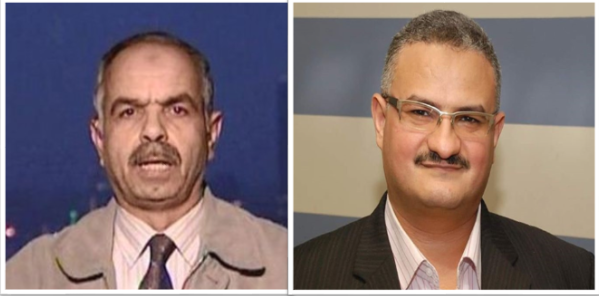The Cairo Criminal Court decided to include journalists Ahmed Sebei, Badr Mohamed Badr and 55 others on the “terror lists” for five years. This decision has many effects, most notably the inclusion on the travel ban lists and the anticipation of arrival, the freezing of funds and all other assets, the dismissal of government jobs, and the loss of the condition of good reputation and conduct necessary to assume public or parliamentary employment and positions.
Colleagues Badr Muhammad and Ahmed Subaie are imprisoned in connection with Case No. 1360 of 2019, Supreme State Security. They face the usual list of accusations levelled against opponents and journalists, which include “spreading false news and joining a terrorist group.” Badr spent more than five years in prison without a court ruling against him. In comparison, colleague Subei spent more than two and a half years in pretrial detention in his latest case (he was previously arrested for four years and obtained a verdict of acquittal), for which he was imprisoned since his arrest On February 28, 2020, while participating in the funeral of the late Islamic thinker Muhammad Emara.
The decision to include other people on the “terror lists” coincides with the imminent launch of the “National Dialogue” sessions, in which this file was absent from its preparatory discussions, despite its great importance, as it affects the lives of more than 7,300 people listed on these lists, most of whom are peaceful politicians and activists. Jurists and journalists. Law No. 8 of 2015 regulates the process of listing on “terror lists”, where the listing is made at the request of the Public Prosecutor, which he submits to the Criminal Court, accompanied by investigations, documents, investigations, or information supporting this request. However, in most cases, these requests are based only on anonymous analyses by the National Security Sector (Political Security Agency) rather than waiting for a final court ruling that the accused belongs to a terrorist group or has committed a terrorist act.
The lists of terrorists from the point of view of the Egyptian regime include opponents of his rule, critics of his government’s performance, those who seek to bring about any change in the regime in a peaceful manner, human rights activists and journalists, and independent trade unionists who reject the government’s efforts to privatize the public sector. Among the names placed on the lists of prominent political “terrorists” is the head of the “Strong Egypt” party, Dr Abdel Moneim Aboul Fotouh, who has been detained for more than three years without trial, and former parliamentarian Ziad El Olaimi, who has been arrested for two years as part of the “Alliance of Hope” that was seeking to run in the parliamentary elections 2020. Activist Rami Shaath, one of the founders of the popular campaign to boycott Israel in Egypt (BDS Egypt), was also placed on the list of “terrorists”, in addition to prominent human rights lawyer Muhammad Al-Baqer, who has been detained without trial for three years.
The inclusion in the lists of terrorism dramatically affects the lives of those concerned, as they are dismissed from their government jobs, and all their money and assets are frozen, which means depriving them and their families of any material income. The decision also affects the future of the families listed on these lists, as they are illegally deprived of government jobs or affiliation with police and military colleges, the judiciary or the diplomatic corps.
The decision to include new people on the “terror lists” aroused great resentment among the Egyptian opposition, as the decision is a great embarrassment for the opposition leaders who support participation in the “national dialogue”, claiming to resolve the complex political and human rights crisis in the country. This decision hits the credibility of these leaders. It undermines their efforts to convince their popular bases of the usefulness of dialogue with the regime, as these rules wait for names to be removed from these suspicious lists and not to include new individuals.





Recent Comments